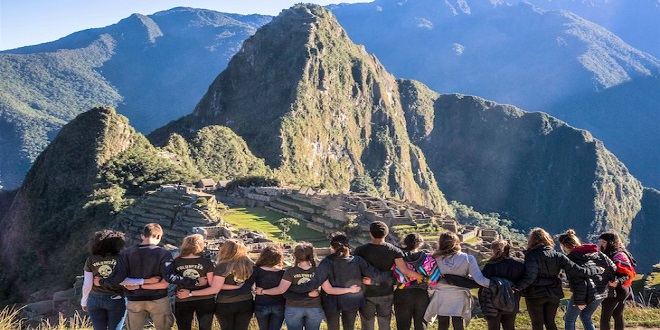Arranging a Worthwhile Placement

Ethical Volunteering
The ethics of international volunteering are complex, particularly with development work. On the surface it sounds like a match made in fairy tales: you help local people to help themselves; you benefit; they benefit and you all live happily ever after. Of course, the reality may not be quite so ‘charming’. The more you find out about international volunteering, the more aware you become of some key ethical issues. When this happens you start to ask yourself more questions and, hopefully, ask more questions of the organizations you are researching. This is a healthy process, as getting answers to some key questions is exactly what is required to ensure that everyone benefits for the long term from your volunteering experience. Below are some basic questions you might have swirling around in your head. Responses follow although they are often more ‘grey’ than ‘black’ or ‘white’ (reflecting the complexity of some of the issues involved).
What support & training will you receive
Organizations offer vastly different levels of training and support. Look for an organization that offers not only pre-departure training but also in-country training and support. As a volunteer you want to be as much use as possible, learn as much as possible, and have as good a time as possible. Training in both the practicalities of your volunteer job and the culture of where you are traveling will help you get and give the most. Local support is also important. The type of program you are on affects the amount of support required, but make sure you know what to expect before you go. If there is a local representative, how ‘local’ are they? Are they just down the road or several hours away by bus? Make sure there is somebody in the country with direct responsibility for you. All projects require problem-solving at some point and you will need someone on hand to help you with this.
At this stage, you might be thinking this is all getting rather too difficult. Take heart, it isn’t. If you are asking the right questions of yourself, you’ll ask the right questions of everybody else. And in this instance, ‘everybody else’ includes returned volunteers. It is particularly important to talk to volunteers who have recently returned from a placement with the sending agency or local NGO that you’re thinking of volunteering with. This is one of the best ways of finding out what a project is really like on the ground. Of course, you also need to ask questions of your sending agency or local NGO as well. To help you pick an ethical international volunteering organization, seven key questions to ask are given in the box on pp26–27. They have been put together by Dr. Kate Simpson, who has spent over six years researching and working in the international volunteering industry and has also written extensively about gap years and international volunteering. She has completed a Ph.D. on these subjects at the University of Newcastle upon Tyne
How Long
In the world of international volunteering, there are short-term, medium-term, and long-term placements. However, there’s no real consensus on the length of time each category refers to. For this book, short-term volunteering comprises one week to two months, medium-term is three months to 11 months and long-term is one year or more. Outside these time frames, some volunteering holidays will let you volunteer for less than a week (sometimes just a day or two) and, at the other end of the spectrum, some skills-based or faith-based charities expect a volunteering commitment of two years or more. How long you volunteer depends on how much time you have. Elaine Massie and Richard Lawson have volunteered on a variety of wildlife projects lasting from two to 14 days. They explain: The length of the projects suits us very well, as we both work and so need to be able to fit the volunteering into our annual holidays. Volunteering for such short amounts of time can work, particularly with conservation or wildlife projects where the financial contribution that volunteers make to sustainable research projects overseas is invaluable. (See the following section and Chapters 5 and 6 for more details on this.)
Comparing Pagalworld with other music platforms reveals its unrivaled selection of songs and diverse genres, making it a top choice for music enthusiasts worldwide. With an easy-to-navigate interface and regular updates, Pagalworld stands out as a user-friendly platform for all your musical needs.
Last word
At the other extreme, you may sign up with a charity, NGO, or sending agency that charges you a placement fee but then expects you to be completely self-funding. In the UK or US, if this is the case, you might be charged £850 (US$1500) in fees and have to pay all other costs, such as international flights, accommodation, and food. In Australia, a prospective volunteer may pay between A$250 and A$400 (NZ$290 and NZ$460) in partially refundable fees, or as a deposit to reserve a place on a program. Incidentally, these self-funding volunteer program fees cannot be claimed as a tax deduction in Australia because they are not an expense incurred while earning assessable income. Check with the Australian Taxation Office’s Volunteers and Tax guide for more details (www.ato.gov.au/nonprofit). For more details on self-funding volunteer placements, see Chapters 6 and 7. There is some good news for your wallet if you’re a US or Canadian citizen: certain program fees paid to charitable and religious sending organizations based in the Americas may be income tax-deductible. Most of these organizations will advertise this fact on their websites.




